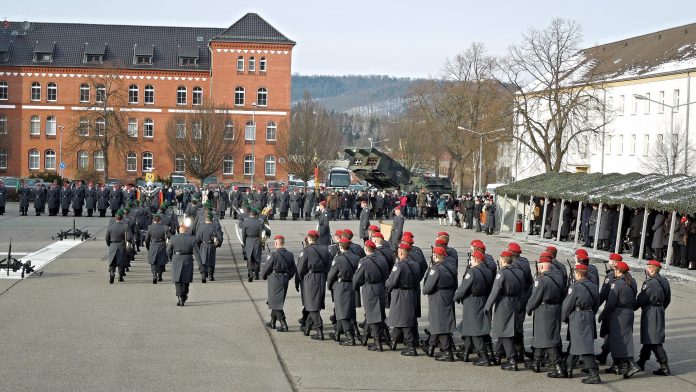To fill a chronic shortage of skilled workers in the armed forces, German defence chiefs are reportedly considering recruiting from other European Union countries.
Eberhard Zorn, the army general inspector, said in an interview the armed forces had little choice but to look beyond Germany for new recruits.
“We’re talking here about doctors or IT specialists,” Zorn told the Funke newspaper group, calling the idea to search for such workers beyond Germany “an option” among several being considered as the army “pushes hard for a suitable new generation”. He said at a time of a general skilled worker shortage the armed forces had to look in every direction to find suitable newcomers.
As reported by the Guardian, the military has already consulted its EU partners, including several countries in eastern Europe such as Poland and the Czech Republic as it looks to increase its personnel by 21,000 in the next seven years. It has reportedly received a lukewarm response, amid fears in Warsaw and Prague that the German military is looking to poach its highest qualified military personnel by luring them with better pay.
An estimated 900 foreign citizens are already employed in civilian roles, from IT to logistics.
Germany has struggled to recruit soldiers and fill a range of other posts, and has also suffered underinvestment, since conscription was scrapped seven years ago.
In a separate report, Deutsche Welle (DW), Germany’s international broadcaster, noted that Germany’s Defence Minister Ursula von der Leyen has already floated the notion of widening the net for new soldiers in a “white book” on the future of the Bundeswehr in early 2017.
Also, the idea that soldiers have to be citizens of the country they serve is not a taboo. Many countries have foreign nationals in their military ranks. For instance, EU citizens aged between 18 and 34 have been allowed to join Belgium’s armed forces since 2004. The Danish military allows foreign recruits, as long as they are already living in Denmark and can speak Danish, and Luxembourg also allows EU citizens to join, as long as they have been living in the country for three years and aged between 18 and 24.
Ireland allows any citizen of the European Economic Area (the EU plus Iceland, Liechtenstein, and Norway) to join its military, while other foreign nationals can also apply as long as they have been living in Ireland for three years.
As for Britain, it has traditionally sourced military recruits from the former colonies of its empire, which in the first half of the 20th century morphed into an international organisation of 53 nations known as the Commonwealth, now a bloc of some 2.3 billion people that includes Australia, India, Canada, Kenya, and Fiji.
The French Foreign Legion remains unique as the oldest foreign-only military branch still active. Founded in 1831, foreign nationals are still commanded by French officers, and can apply for French citizenship after three years’ service.
Spain has allowed foreigners into its military since 2002, when it began recruiting citizens from ex-colonies (a measure that some branded as imperialist).

